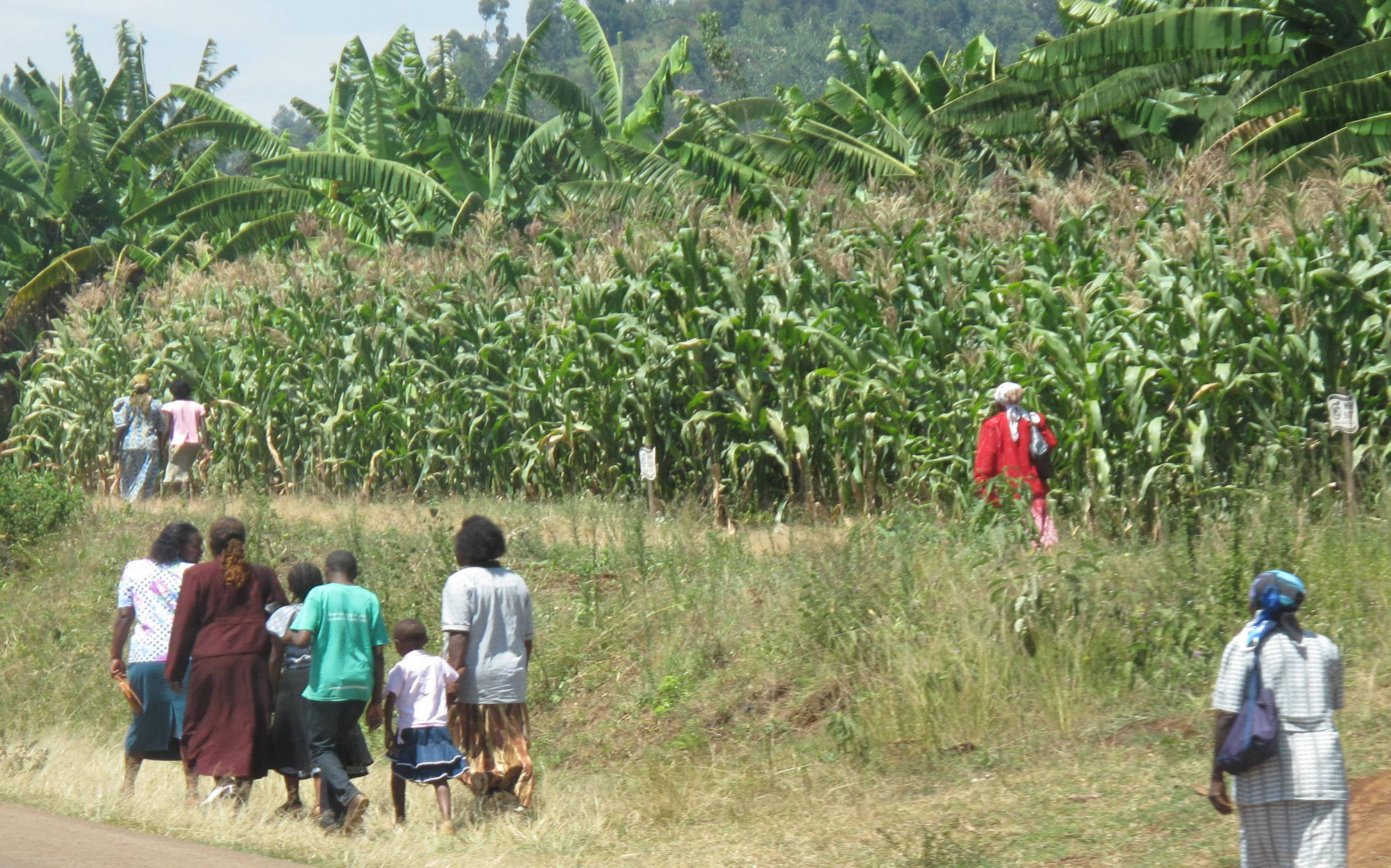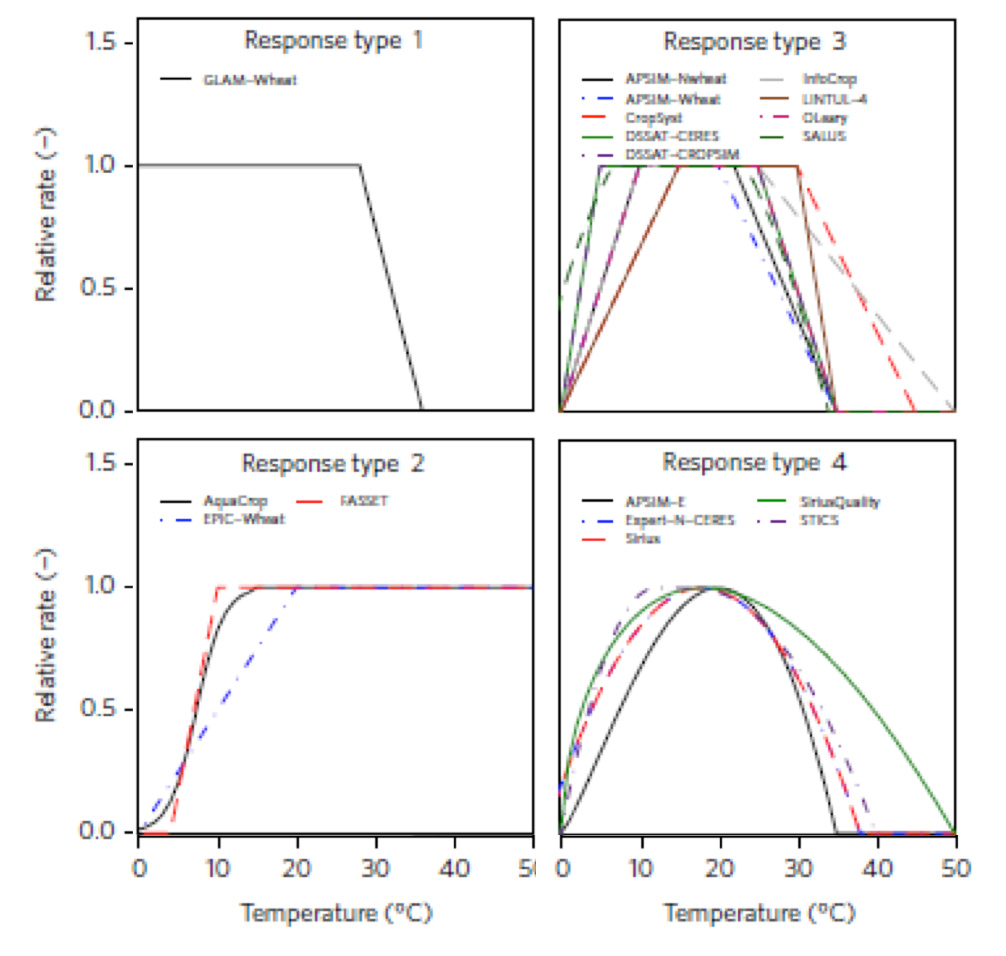Major Crop Yields will Decline as Global Temperatures Increase
– New Study Finds
Aug 30, 2017
Rising temperatures will have a negative impact on global yields for four major global crops, according to a recent publication in Proceedings of the National Academy of Sciences. The article, entitled “Temperature increase reduces global yields of major crops in four independent estimates” examines impacts on maize, wheat, rice, and soybean. “This study is important because it shows us that despite studies using different approaches to analysis, all evidence is pointing to the same conclusion,” explains co-author Shilong Piao. “The increases in temperature will cause major crop yields to decline.”
The team of twenty-nine researchers, many of which are part of the AgMIP community, examined all peer-reviewed publications from grid-based models, local point-based models, bio-statistical regressions, and field-warming experiments to conduct this comprehensive assessment. Study findings demonstrate the potential impacts temperature will have on yields, though CO2 fertilization, changes in precipitation, effective adaptation, and genetic improvement are not considered.

Of the four crops examined, the study finds that maize is most likely to experience the greatest negative impacts from rising temperature. On average, for each degree in global temperature increase, global maize yields could decrease by 7.6%. This is particularly concerning for major maize producing nations. Two-thirds of maize production comes from the United States, China, Brazil, and India. These countries are expected to experience reductions of, on average, 10.3%, 8.0%, 5.5%, and 5.2% per degree-Celsius of global warming, respectively.

The impact of wheat, though slightly less than maize, is also significant. Analysis of the four methods finds that globally, there will be an average decrease in yield of 6.0% per degree-Celsius increase in global warming. Regional heterogeneity demonstrates some countries are more likely to experience higher yield losses. For example, India may lose an average of 9.1% yield per degree-Celsius increase, while China, the largest producer of wheat, may lose an average of 2.6% per degree-Celsius.
Study findings suggest rice yields may decrease by an average of 3.2% per degree-Celsius of global warming, though grid- and point-based simulations and field warming experiments project higher impact while regressions suggested minimal impact. These inconsistencies were found within countries – causing some uncertainty. Other countries, however, showed consistent declines across all methods.
Soybean yields documented a global average reduction of 3.1% per degree-Celsius of global warming, though only three global studies using two different analysis methods were available.
The study also acknowledges that increasing temperatures will affect regions across the globe differently and in some regions, temperature increases have already had an impact. Improved yield varieties and new technologies have offset some of these temperature impacts, but in some regions yield increases have already stagnated.
In addition to the direct impacts temperature change will have on yield totals, additional indirect impacts from increased temperature, such as increased water stress and more frequent heat waves, could further decrease yield totals. These impacts will vary according to geographic region and some mitigation efforts may minimize or even reverse the negative impacts temperature will have.
“Changes in temperature will impact regions across the globe differently,” says Senthold Asseng. “Improving model assessments and incorporating more variables and adaptation efforts into future studies will help to give us an even greater understanding of the potential impacts rising temperatures will have.”
